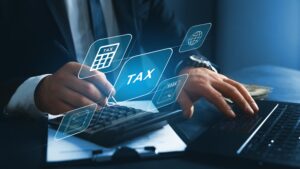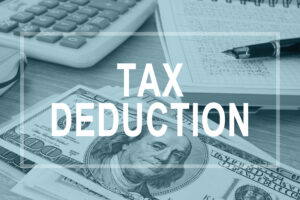How Is That Federal Tax Code Treating the Uber Rich?

How Is That Federal Tax Code Treating the Uber Rich?
Earlier this year in his annual State of the Union Address, President Obama spent much of his speech discussing taxes. Specifically he talked greatly about the unfair tax system that favors the rich. If the president’s claims were to be believed, then you would think that the ultra wealthy pay almost no tax and that the country needs to significantly increase their tax bill. Taxing the wealthy has long been an argument from many as a means to improve our economy and help the lower class. The problem is, history has shown that taxing the wealthy more doesn’t help. It actually hurts.
The Wrong Message
However, despite what history tells us, many people still believe that the rich need to pay more and that the middle class is paying too much. Recent polls suggest that about 65 percent of America feels this way. While it might be true that the middle class pays too much of their income to the IRS, the fact is the top 1 percent already pay their fair share to the government. However, the media and democratic politicians would have the country believe otherwise. Again and again, American citizens are bombarded with the message that the rich don’t pay their fair share.
The Rich Pay Enough
A closer look at the real numbers, however, reveals that the ultra wealthy are already paying plenty. According to the IRS, the top 1 percent paid 35 percent of all the federal income tax collected in 2011, while they earned 19 percent of the total income. What’s more, the top 10 percent of earners in the country actually pay two-thirds of the total federal income tax bill, while the bottom 50 percent is only paying 3 percent of the total income tax. That sounds like the wealthy are already paying their fair share.
The Super Wealthy Pay Even More
While there are not a lot of people who fall into this category, the super wealthy are paying even more in taxes than the rest of the top 1 percent. In fact, the top 0.1 percent actually paid 16 percent of the country’s entire income tax bill, which collectively is more than five times greater than half of the nation’s population. When is enough, enough?
Raise Taxes on the Rich Hurts the Economy
Yet, left-leaning politicians and many in the media would still have you believe that the rich don’t pay enough. The problem is raising taxes actually hurts the economy. By taking more money from the rich through higher taxes, it also takes money away from small and medium-sized businesses and their owners. That hurts the economy more because it means there is less money for hiring more employees. The economy suffers and so do the middle and lower class families. The battle will rage on and both sides will continue to plead their case, but the numbers don’t lie, and history has shown that the rich already pay their fair share to the IRS. Taxing them more doesn’t work.
We hope you found this article about “How Is That Federal Tax Code Treating the Uber Rich?” helpful. If you have questions or need expert tax or family office advice that’s refreshingly objective (we never sell investments), please contact us or visit our Family office page or our website at www.GROCO.com. Unfortunately, we no longer give advice to other tax professionals gratis.
To receive our free newsletter, contact us here.
Subscribe our YouTube Channel for more updates.

Alan Olsen, is the Host of the American Dreams Show and the Managing Partner of GROCO.com. GROCO is a premier family office and tax advisory firm located in the San Francisco Bay area serving clients all over the world.
Alan L. Olsen, CPA, Wikipedia Bio

GROCO.com is a proud sponsor of The American Dreams Show.

The American Dreams show was the brainchild of Alan Olsen, CPA, MBA. It was originally created to fill a specific need; often inexperienced entrepreneurs lacked basic information about raising capital and how to successfully start a business. Alan sincerely wanted to respond to the many requests from aspiring entrepreneurs asking for the information and introductions they needed. But he had to find a way to help in which his venture capital clients and friends would not mind.
The American Dreams show became the solution, first as a radio show and now with YouTube videos as well. Always respectful of interview guest’s time, he’s able to give access to individuals information and inspiration previously inaccessible to the first-time entrepreneurs who need it most. They can listen to venture capitalists and successful business people explain first-hand, how they got to where they are, how to start a company, how to overcome challenges, how they see the future evolving, opportunities, work-life balance and so much more..
American Dreams discusses many topics from some of the world’s most successful individuals about their secrets to life’s success. Topics from guest have included:
Creating purpose in life / Building a foundation for their life / Solving problems / Finding fulfillment through philanthropy and service / Becoming self-reliant / Enhancing effective leadership / Balancing family and work…

MyPaths.com (Also sponsored by GROCO) provides free access to content and world-class entrepreneurs, influencers and thought leaders’ personal success stories. To help you find your path in life to true, sustainable success & happiness. It’s mission statement:
In an increasingly complex and difficult world, we hope to help you find your personal path in life and build a strong foundation by learning how others found success and happiness. True and sustainable success and happiness are different for each one of us but possible, often despite significant challenges. Our mission at MyPaths.com is to provide resources and firsthand accounts of how others found their paths in life, so you can do the same.
Deducting “Other” Business Expenses
Deducting “Other” Business Expenses The mysterious “other.” Some tax deductions are not mentioned by name on a tax form but can still be quite valuable to a taxpayer. If you own a trade or business, you can deduct a number of expenses under the broad category of “other.” In general, taxpayers may deduct ordinary and…
Commonly Overlooked Tax Deductions
Commonly Overlooked Tax Deductions As the tax filing deadline approaches, taxpayers are always looking for legitimate tax deductions they may have overlooked. For example, did you know you can deduct the money your business spent to purchase office supplies during the year? As long as these expenses were for items that are ordinary and necessary…
Tax Benefits of Owning a Home
Tax Benefits of Owning a Home Deducting mortgage interest In most cases, you can fully deduct your mortgage interest secured by your primary or secondary home. Beginning in 1987, mortgage interest to buy, build, or improve your home (acquisition debt) up to $1,000,000 or home equity loans up to $100,000 became tax deductible. Points (also known…
Popular Tax Credits for First-Time Homebuyers, Students and Those With Childcare
Popular Tax Credits for First-Time Homebuyers, Students and Those With Childcare By Victor Omelczenko 1/26/2009 Whether you’re looking to lower your tax bill or increase your refund, these IRS tips can help your bottom line. Tax credits can help pay the cost of raising a family, going to college, saving for retirement or getting day…



